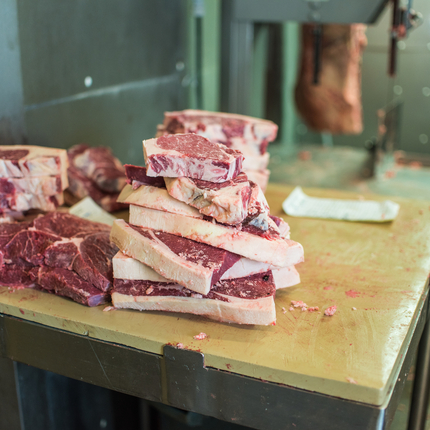By Eric Galatas, Public News Service - Nebraska
The Nebraska Department of Agriculture is accepting applications for grants through the Independent Processor Assistance Program.
Johnathan Hladik, policy director at the Center for Rural Affairs, said the agency is expected to distribute nearly $10 million from the American Rescue Plan Act to Nebraskans, in an effort to improve and expand the state's meat-processing capabilities.
"The program is designed to help our small and mid-sized meat lockers expand in the state," Hladik explained. "These are lockers that are typically located in the small towns, serving farmers in the area, and providing a product that consumers otherwise wouldn't be able to access."
Hladik pointed out the program will help family-scale meat processors play a significant role in increasing supply, severely limited during the pandemic, and should bring down prices for consumers.
Grants are available to hire and train staff, modify or expand facilities, purchase equipment and upgrade technology to improve logistics and e-commerce. More information about how to apply can be found online at cfra.org. The deadline is August 12.
Ryan Drevo, owner of Blue River Meats in Crete, has already filed his application. With consumers increasingly curious about where the meat they serve to their families comes from, Drevo said smaller lockers are uniquely positioned to help local farmers get a better price for livestock, and boost rural economies.
"Right now we have five employees," Drevo stated. "With this grant money, we will be able to produce another five to 10 more full-time positions. And these are good, high-paying, quality jobs, which is going to directly stimulate the economy."
Some industry groups have criticized the program as big government picking winners and losers, but Hladik noted grant money can only be spent in response to the COVID public health emergency. He added to qualify, processors must operate as either a USDA-Food Safety and Inspection Service facility or a federally regulated custom-exempt slaughter and processing facility, while also complying with federal regulations.
"And we know our big processors got millions and millions and millions of federal dollars designed to help respond to that same emergency," Hladik recounted. "This is an opportunity for the small processors that have been overlooked, that play an essential role in our food chain, and could play an even bigger role in our food chain."
Click here to listen to the interview.
Feature photo by Kylie Kai





